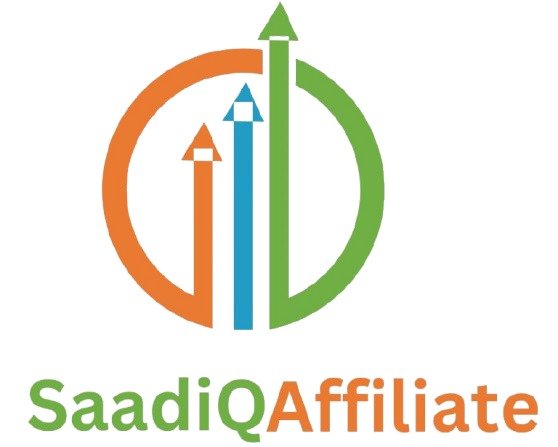
The Topics of Conversation and the Characteristics of Their Purpose. ( stronau.ml ) Detecting strategies for resolving global warming at the text of the 2004.
mail Marketing:
A Powerful Tool for Business Growth
What is the first thing that comes to your mind when I say “email marketing”? Nothing, really? Ordinarily it means: the use of electronic mail for commercial purposes; attaching and sending out bulk as well as direct mail advertisements (creative b) to subscribers and even completely different people, spread –marketing; or conveying messages back and forth between different parties-business and their customers, establishing network. Besides, It is a form of direct communication that allows businesses to communicate with their audience in a personalized, targeted way. Which means that selling over email is possible as long as it delivered it in a genuine manner; Canadians are not looked down if they try selling to people from other countries, for instance.
Online business development using M-Paisa. The email also includes company branding and logos of affiliated partners, in most of the cases, and standard compliments. Email list management is a significant aspect of email advertising. Which explains why most consumers will not frequently encounter similar advertising strategies.
Advertising Strategies; War: The Evolution of Postal Marketing War How and why postal marketing is regarded as a ‘trade war’ between brands Email Marketing: 43 Strategies to Get Your Emails Opened, Read and Responded To.
mail Marketing: A Powerful Tool for Business Growth. Email marketing is fast becoming one of the most convenient and inexpensive means through which firms can reach out to their customers.
More or less no matter the size of the business, whether it is a start-up, a small-sized business or a large corporation, email marketing helps in engaging the customers directly to an extent that is beyond compare. In this article, we shall take a closer look at the relevance of email marketing, its advantages, its effective tactics, its optimal practices, as well as email marketing enabling technologies.
What is Email marketing? hmm Science fictiona (shfilecom.com ) The hot fusions of email marketing and social media after the rise of the former. Email marketing simply refers to sending emails to a pooled group of people, usually customers or potential customers, for the purpose of sustaining creating awareness, marketing communication, and so on. In other words, it is a strategy used to reach out to diverse audiences and inform them on the activities of the business. It is a personal layer over such connective strategies. Email marketing is still an effective technique and one that can reach the targeted audience better than hover-droning at various social media platforms.
The Significance of Email Marketing Email marketing is as vital as a blood vessel to the circulatory system even though it is often regarded as the least important in the pack. A report published by Statista in 2023 indicates that there were nearly 4.7 billion email users worldwide and this figure is expected to increase by more than 5.4 billion by the year 2025. This prevalence cuts across all demographics and makes email marketing practically speaking an effective channel for communications.
Besides, Post an email advertisement campaign non-personal messages provide another sort of appeals to the user. Content can be crafted by determining factors such as the nature of the recipient, the history of interaction with the recipient and the past behaviour of the recipient thus receiving relevance to the individual.

Successful Email Promotion Email marketing comes with numerous advantages
Return on Investment (ROI) means the amount of income generated for every dollar of advertising spent. This is perhaps what motivates investors the most about email marketing. In fact, the Direct Marketing Association (DMA) estimates that $1 spent in email marketing generates $42 in revenue, proving that it is one of the most inexpensive marketing tools.
Personalization: While doing email marketing a firm can divide its consumers according to age and sex, their previous purchases, which pages they have visited and so on. This ensures that more personal and specific messages are sent resulting in a greater likelihood of conversion.
Establishing Trust: Email marketing, on the other hand, transcends advertising in that it promotes the already established mutual relationship between the business and its customers. Periodic distribution of emails to clients with contents such as newsletters, offers, or infomercials on the business help to create the image of a brand that is always active.
Provides Results: It is also worth highlighting the aspect concerning the results tracking in email marketing as one of its pros. The most common such indicators include open rate, click-through rate, conversion rate and bounce rate among others. This data allows you to change your tactics and improve the effectiveness of the subsequent campaigns.
Mechanization: Features of electronic marketing systems make it possible for organizations to mechanize the entire process of sending out targeted and personalized messages triggered by usercharacteristics and behavior. Email automation through welcome emails, abandoned shopping cart emails and other customer emails saves cost and effort in subsequent customer management processes.
Email Marketing Strategies
If you want to engage your audience and convert them into your clients there are particular email marketing strategies that need to be followed. Here are some major ones:
Segmentation: The more segments of your audience the more
Best Practices for Email Marketing
- Build a Quality Email List: The foundation of any email marketing campaign is a high-quality, permission-based email list. Avoid purchasing email lists, as these can result in high bounce rates and spam complaints. Instead, focus on organically growing your list through lead magnets, sign-up forms, and content offers.
- Provide Value: To keep your subscribers engaged, always offer value in your emails. This could be through useful information, discounts, or special promotions. Ensure your emails are relevant to your audience’s needs and interests.
- Respect Privacy and Preferences: Make sure to respect your subscribers’ privacy. Allow them to manage their preferences, such as how often they receive emails or the type of content they are interested in. Always include an unsubscribe option, as required by laws such as GDPR and CAN-SPAM.
- Consistency is Key: Consistency in your email marketing efforts is crucial. Whether it’s a weekly newsletter or a monthly product update, maintain a regular schedule to stay top-of-mind with your audience.
- Track and Analyze Performance: As mentioned earlier, tracking performance is essential for refining your email marketing strategy. Keep an eye on metrics like open rates, click-through rates, and conversion rates to gauge the effectiveness of your campaigns. Use this data to adjust content, subject lines, and delivery times for better results.

Popular Email Marketing Tools
Several email marketing platforms make it easy to create, send, and track campaigns. Some of the most popular tools include:
- Mailchimp: One of the most popular email marketing tools, Mailchimp offers a user-friendly interface and powerful automation features. It also includes robust analytics to measure performance.
- Constant Contact: Known for its excellent customer support, Constant Contact provides templates, list management, and easy-to-use automation tools to help you create effective campaigns.
- HubSpot: HubSpot offers a full suite of marketing tools, including email marketing, automation, CRM, and analytics. It’s ideal for businesses looking for an all-in-one solution.
- ConvertKit: Focused on creators and small businesses, ConvertKit offers powerful email automation and segmentation features.
- ActiveCampaign: ActiveCampaign combines email marketing with CRM and marketing automation, making it ideal for businesses that want to integrate email with their broader sales and marketing strategy.
